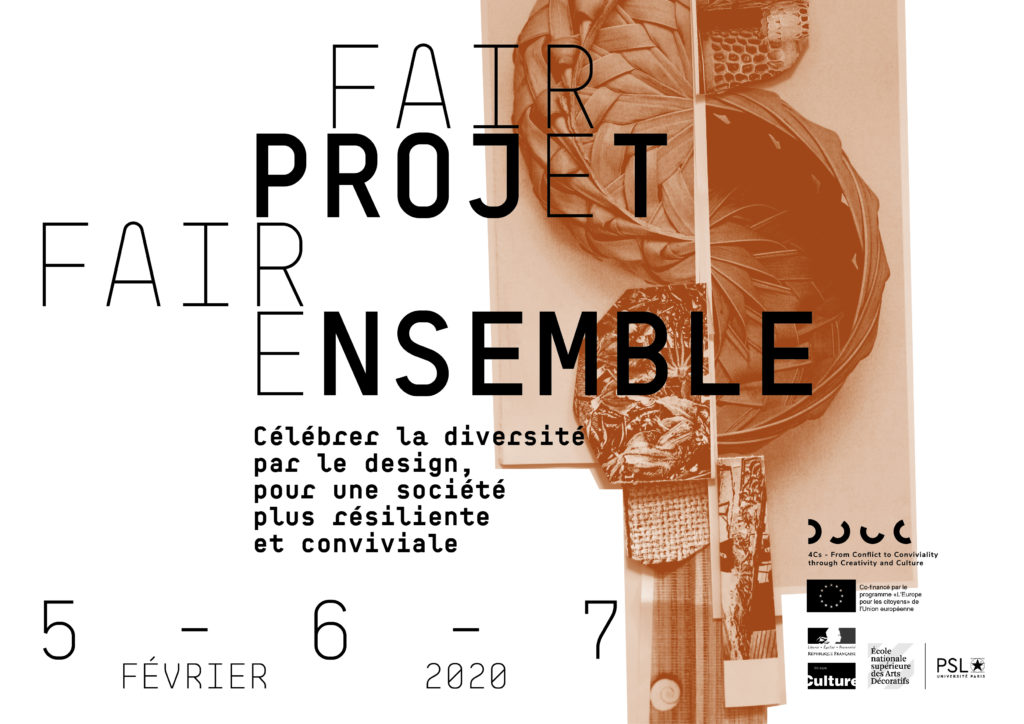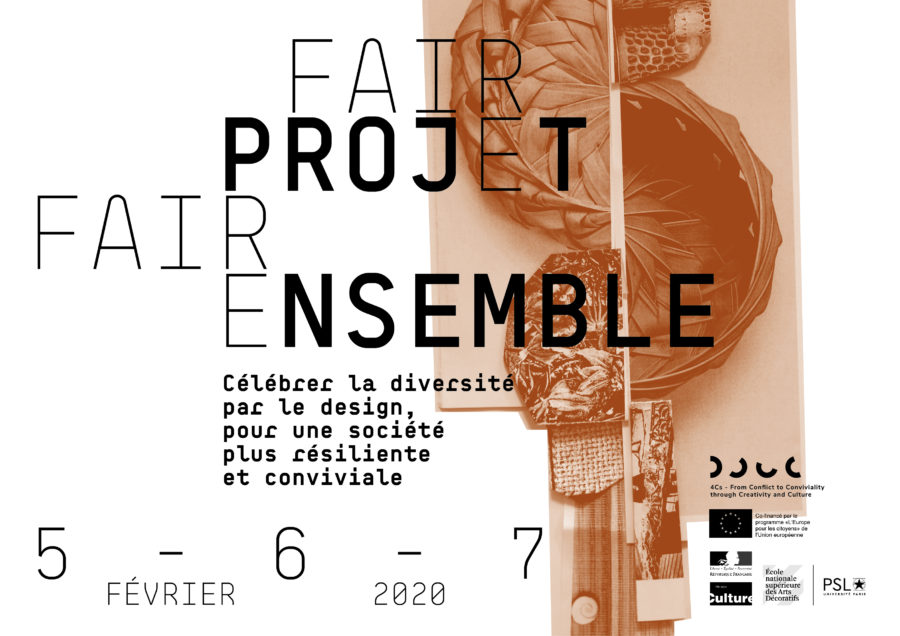
La perte de repères qui caractérise notre société contemporaine oblige à examiner des formes et des structures sociales plus ouvertes, dynamiques, fluides et changeantes. Ces nouvelles entités protéiformes incluent naturellement l’étranger, et pourraient nous projeter dans une société du vivre ensemble.
Comment faciliter ces nouvelles typologies de liens valorisant la diversité ? Comment le design peut-il contribuer à la mise en place de nouveaux récits capables de remettre en cause la « pensée frontalière » dominante ? Comment pourra-t-il œuvrer à la construction d’un avenir commun décolonisé ?
Du 5 au 7 février 2020, designers, chercheu.r.se.s, philosophes, artistes s’interrogeront ensemble sur les moyens de stimuler et cultiver la diversité et le sens critique tout en catalysant les ressources positives nécessaires pour faire face à l’imminente catastrophe environnementale, sociale et culturelle.
« Faire projet, faire ensemble » se veut plus qu’un colloque : une manifestation conviviale qui met en lumière le rôle du design comme processus intellectuel, créatif et humaniste, capable aussi bien d’alimenter des réflexions que de co-générer des actions et initiatives fluides. Il s’agit de permettre aux individus, aux communautés, et plus généralement à la société, de se reconnecter au présent et devenir acteurs, ensemble, d’un nouvel art de vivre.
« Crafting for Change, horizontal exchange as a mean for empowerment. »
Abstract
In 2016 Natalia Baudoin created and directed the Crafting for Change project that was part of Sorbonne pour l’Organisation des Nations Unies SONU. The project aimed to enhance craftsmanship using design as a tool for socio-economic integration and development. In order to do so, the project worked on installing a co-creation horizontal dynamic between the design students and the crafts people participating in the project in France and in Argentina. In these creative working spaces, the actors of the project exchanged on at least three different levels: professional, cultural and generational which revealed the inner richness of each of the participants. The cultural level revealed the traditions and habits coming from different countries, or different contexts (rural or urban), enriching the communication, enhancing the fruitful exchange of points of view inherently manifest in the generational difference. The professional level revealed their skills and created common interests amongst them. The impact of these encounters resulted in the empowerment of all the actors, where for example the tags “refugee”, “migrant” or “peasant” became “expert”, creating a larger community for themselves. Two exhibitions and several conferences were organized to give positive public visibility to the stakeholders of the project and thus contribute to a larger social integration. Natalia will explain how the project came to life, the challenges faced by the actors of the project, and its overall impact.
Créative Europe 4Cs Conference ENSAD 2020
https://www.4cs-conflict-conviviality.eu
5-6-7 février 2020
Amphithéâtre Rodin
École nationale supérieure des Arts Décoratifs
31 rue d’Ulm, 75005 Paris
